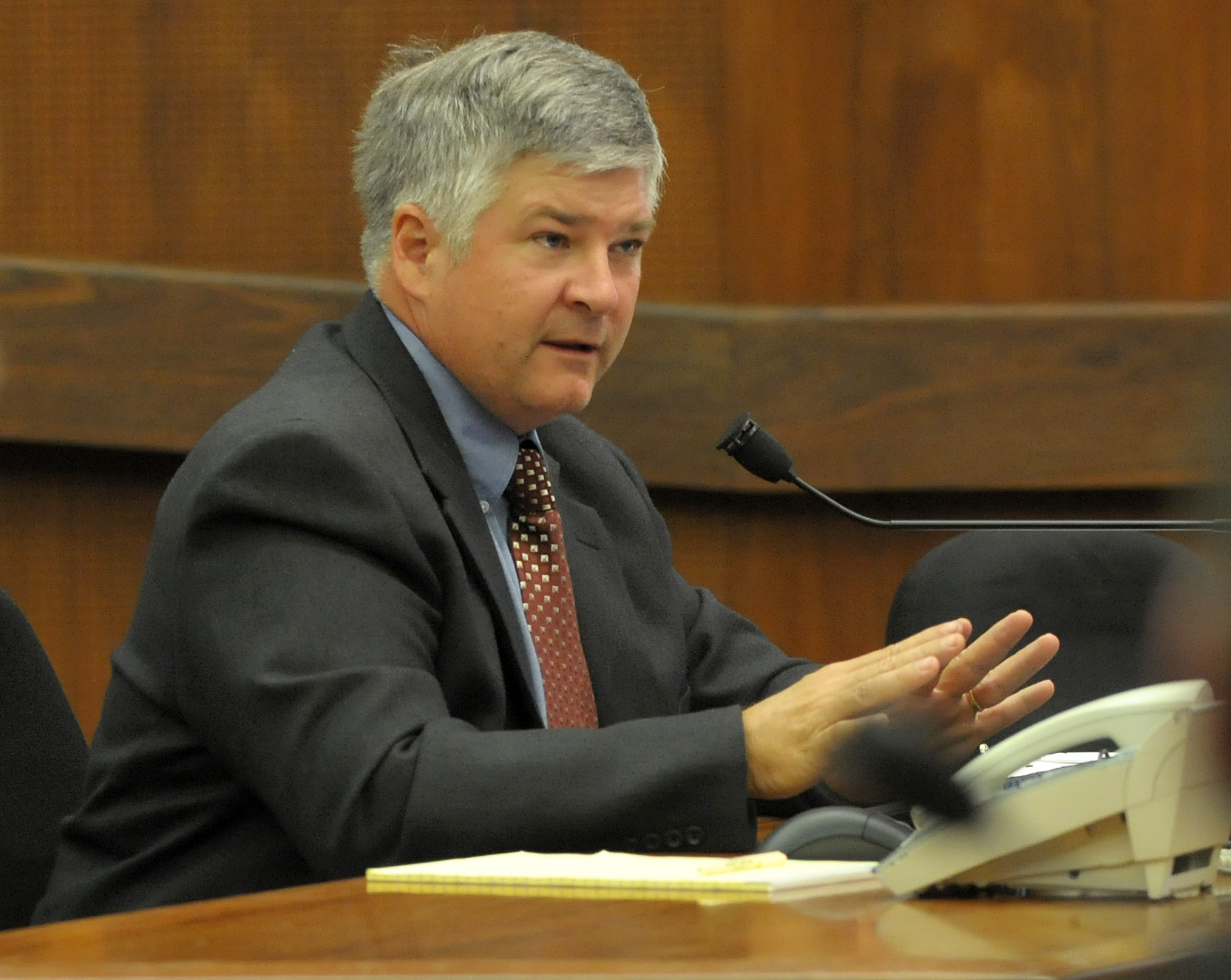Santa Barbara County Vies for Better Water Reliability as Drought Subsides
Water Agency’s Tom Fayram Considers Cachuma Contract Renewal

The last time Tom Fayram walked on water, Lake Cachuma was just a mud puddle. Today, Cachuma is half full, thanks to this season’s extravagant deluge. But even amid this newfound aquatic abundance, Fayram — as the county’s official water czar — might find the ability to walk on water an occupational necessity in the months to come, given the challenges ahead. At Tuesday’s Board of Supervisors meeting, Fayram was gently pummeled for presenting a highly preliminary report on a proposal to allow Santa Barbara County water agencies to secure an additional 12,000 acre-feet a year in state water entitlements. As Fayram told it, the deal — which would cost $30 million — would not be used as the basis for new development but to increase the reliability of current state water deliveries, which vary dramatically from year to year. It would also be used, he explained, to create a “drought buffer.”
Longtime critics of the State Water Project — Carolee Krieger, Arve Sjovold, and Marc Chytilo — pounced, arguing the additional supply would enable water agencies, such as Santa Maria and the Carpinteria Valley water districts, to sell their more expensive state water allocations to developers trying to build along the Gaviota Coast or in Goleta. Carpinteria’s district, as Krieger testified, has been trying to market up to 1,000 acre-feet of its state water and has been in discussions until a few weeks ago with developers of Shelby Ranch in Goleta. Before that, Carp water had been in similar discussions with the owners of Gaviota’s Bixby Ranch. Neither went anywhere. Supervisor Das Williams expressed serious concern about the growth-inducing effects of such water wheeling, which prompted Supervisor Steve Lavagnino to express shock that water — or its absence — would be used as a tool to limit growth. “It also sustains life,” Lavagnino said. Williams noted that new water supplies have always been used to fuel growth. “To ignore this,” Williams said, “would be to ignore the entire history of Southern California.”
The proposal to secure additional state water is still very much in its infancy; environmental review is only just starting. The supervisors, in fact, had to green-light that process. Williams pushed for, and got, language requiring that the supervisors be notified of any future efforts by any county water agency to peddle state water to private developers.
On another front, the supervisors approved Fayram’s request that the County Water Agency notify the federal Bureau of Reclamation — which built and owns Lake Cachuma — that the county wants to commence negotiations to renew the contract for the dam, which expires in 2020. This is likewise a very preliminary move for a process that promises to be very long and very fraught. The County Water Agency was the signatory on the original 1948 contract but actually neither gets nor delivers any water from the dam. Several of the five water agencies that do receive water take a dim view of Fayram playing the lead role in a bargaining process for which there isn’t even a table they could sit at. The City of Santa Barbara, for example, demanded not just a table but a seat that afforded voting rights commensurate with the money they spend buying water from the lake. A water district in Santa Ynez demanded that everything be put on hold pending the development of a process giving the water agencies their due voice.
Underscoring what has been a heated debate about process has been Fayram’s conviction that only the County Water Agency has the broad regional view. In the recent drought, he’s complained, water districts pursued their individual self-interests at the expense of the lake’s long-term water supply. Given siltation of the lake, climate change, and endangered steelhead issues, Fayram has argued that water districts will be forced to cut way back on how much water they take from the lake. Without getting into detail, he assured the supervisors that all stakeholders would be involved. They gave Fayram the green light to begin contract talks. “I may be an optimist or maybe just a fool,” he said afterward, “but I think we can get through this together.”



